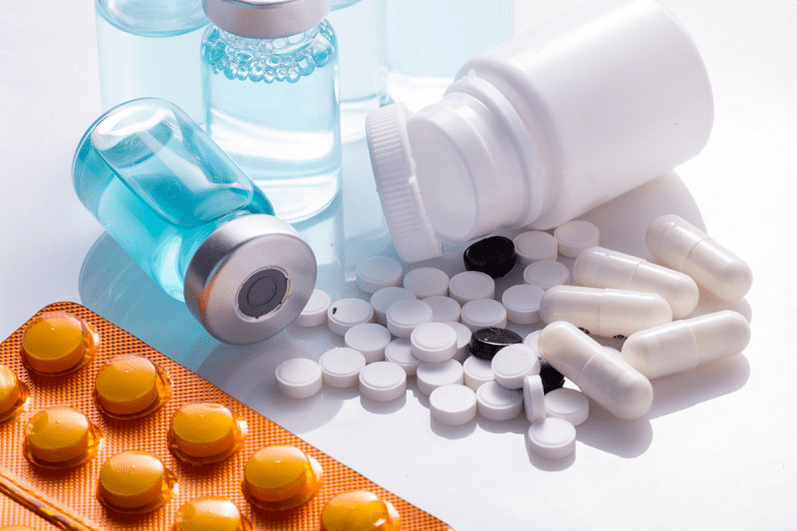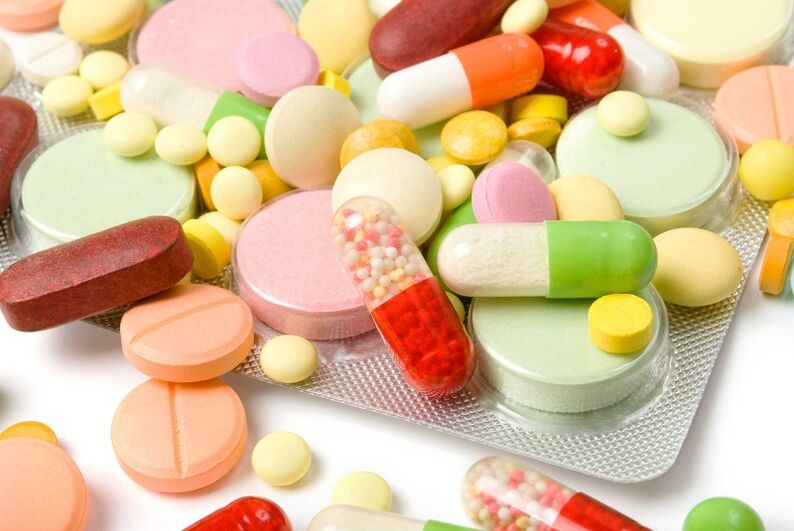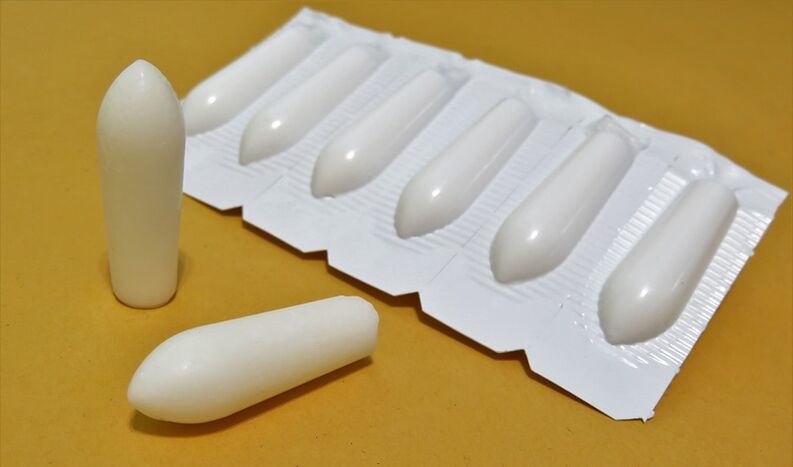Prostatitis is an inflammatory disease of the prostate.Many factors are involved in the development of the disease.The risk group includes men with a sedentary lifestyle, overweight and over 50 years of age.Pathology manifests itself as disorders of the genitourinary system.Effective medications for prostatitis help alleviate symptoms and influence their cause.The choice of medication is made only by the attending physician.

What to fight with prostatitis
Medicines, physiotherapeutic procedures, external remedies, massages, alternative methods, diet, therapeutic exercises - all these are measures for the treatment of prostatitis.The most effective medicines will not be as effective as the manufacturer claims if the patient does not follow other rules of therapy.Medicines for prostate inflammation are aimed at eliminating the inflammatory process, eliminating stagnation and normalizing blood circulation.To do this, the doctor prescribes drugs from different groups, depending on the form of the pathology and the characteristics of the clinical course.
What symptoms bother a man with prostate inflammation:
- discomfort and pain when emptying the bladder;
- frequent urge to urinate;
- pain during bowel movements;
- general symptoms of intoxication;
- pain in the perineum, radiating to the lower back;
- increased body temperature, chills.
In the chronic course of the pathology, the symptom complex worsens.Disorders such as constant and dull pain in the lower back, irritability, insomnia and burning in the urethra are added.Often, advanced prostatitis affects sexual function, causing painful ejaculation and discomfort during intercourse itself.
At the initial stage of the pathology, prostate medications help eliminate symptoms, and exercise and diet prescribed by the doctor eliminate the likely causes.Treatment in this case will be as quick and effective as possible.If you ignore the manifestations of pathology for a long time, you may encounter serious complications, including the need for surgical removal of the prostate gland.
Basic medicines for treatment
To treat prostate inflammation, drugs from the groups of non-steroidal anti-inflammatory drugs, alpha-blockers, antibacterials and immunomodulators are used.Additionally, the doctor may recommend vitamin complexes, dietary supplements and drugs to increase potency.
With concomitant bacterial flora, antibiotics are necessarily prescribed.This is only done by a doctor after an examination.Broad-spectrum antibacterial agents are prescribed most often.Self-medication with drugs from the antibiotic group is prohibited, as they have many adverse reactions and require the correct choice of dosage and duration of treatment.
Antibiotics are prescribed in tablets once a day.The course of treatment usually lasts 3 days, but can be extended by the attending physician.They have antibacterial, antifungal and antiprotozoal effects.
Penicillin antibiotics often provoke the development of allergies.If symptoms appear, you must immediately inform your doctor.The specialist will change the treatment medication and carry out symptomatic treatment to eliminate the consequences.

Effective herbal remedies
Complex drug therapy for prostatitis may include herbal preparations.They are effective in improving blood flow, microcirculation, relieving inflammation and stimulating recovery processes.This is not the complete list of its beneficial properties;therefore, for most men with prostatitis, they will be helpful.
An Indian-made medicine is indicated for prostatitis with the aim of strengthening the immune system in general.It is suitable for improving the function of the genitourinary system.Available in tablet form, taken twice before meals.
The effectiveness of the drug will increase if during treatment the man switches to a healthy diet, reducing the amount of fat, sugar, alcohol and salt consumed.Contains ginseng, calamus, sandalwood, cloves, ginger and other plants.The good thing about this medicine is that it can be combined with any medicine.
There is an effective Indian medicine that has anti-inflammatory and prostatotropic effects.The product improves microcirculation in damaged tissues and improves spermatogenesis.Its benefit also lies in reducing congestion and reducing manifestations of dysuria.
The product contains plants such as wind lettuce, suvarnavanga, beautiful jagireya, male orchid, Leptadenia reticulum and others.The medicine is available in tablet form and is taken twice a day during the initial period of the illness.As you recover, the dosage is reduced.It is contraindicated only in case of intolerance to individual components of the composition.
Vitamins and dietary supplements
During the treatment of prostatitis, it is extremely important for a man to replenish the balance of vitamins and microelements that are missing in the body.To this end, the doctor may recommend taking vitamin complexes and dietary supplements.Systematic intake of these remedies will help increase the body's resistance and improve overall well-being.
Medicines have antioxidant, immunomodulatory, restorative and anti-inflammatory effects.They contain beneficial components for the prostate, such as vitamin E, zinc, glycine, pumpkin seeds, copper and others.Together, these substances help relieve swelling, normalize and remove secretions, and maintain hormonal balance.The products also contain L-glutamine and L-alanine, which are antioxidants.
Nonsteroidal anti-inflammatory drugs
Considering that prostatitis is based on an inflammatory process, treatment will be accompanied by anti-inflammatories.They relieve pain, relieve fever, reduce swelling, and some help thin the blood and clear congestion.
NSAIDs for prostate inflammation work by reducing prostaglandins involved in the development of the inflammatory response.They have antipyretic, anti-inflammatory and strong analgesic effects.They are characterized by low cost and relatively high efficiency, but at the same time they have many side reactions and contraindications.
Adrenergic blockers for urinary disorders
The therapeutic effect of adrenergic blockers is as follows:
- elimination of acute symptoms associated with impaired urine output;
- improvement of urethral patency;
- reducing the frequency of relapses in chronic prostatitis;
- decreased prostate pressure on the urethra.
These medications are also necessary to prevent purulent inflammation.Congestion in the prostate and bladder can result in infection and accumulation of pus.When the tension and spasticity of the urethra are relieved, the stagnation also disappears.
Adrenergic blockers are successfully used in acute and chronic forms of pathology.They have a pronounced analgesic effect, eliminating difficulty urinating, relieving spasms and tension in the bladder, urethra and prostate.
Immunomodulators for external use
To increase the body's resistance, drugs from the immunomodulatory group are used.They come in the form of tablets and rectal suppositories.
Suppositories are prescribed in parallel with antibacterial therapy.They are used 2 times a day, the course of treatment is an average of 15 suppositories.They are prescribed for acute and chronic pathologies, and the duration of therapy and dosage are determined by the attending physician.

During the treatment of prostatitis, several drugs with other therapeutic effects are combined.It is important that one medication does not exclude the action of another.Considering that every medication has contraindications, self-medication is highly discouraged.Completing therapy according to the doctor's instructions will allow you to get rid of the pathology in a short time, without risking the health of other organs and systems.























